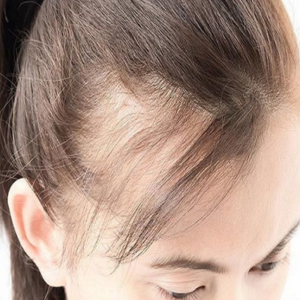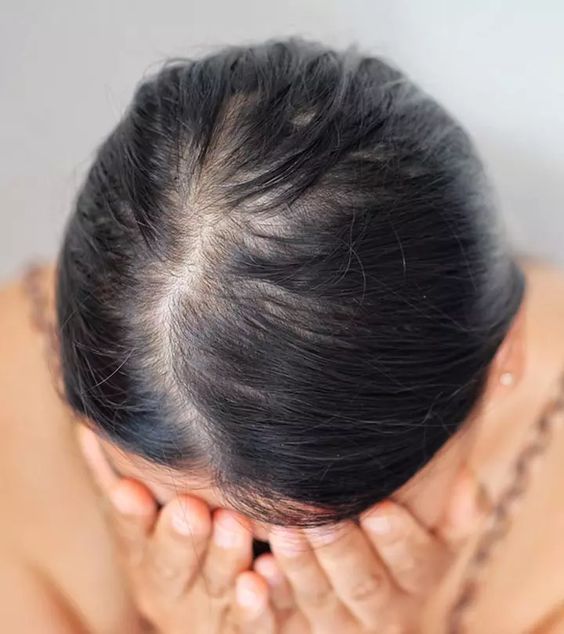
Vitamin D Deficiency: Vitamin D plays a crucial role in promoting hair follicle cycling and hair growth. Deficiency in vitamin D has been linked to various hair disorders, including alopecia areata and telogen effluvium. Ensuring an adequate intake of vitamin D through sunlight exposure, dietary sources (such as fatty fish, fortified foods, and supplements), and/or supplementation may help support healthy hair growth.
Vitamin A Excess or Deficiency: While vitamin A is essential for maintaining a healthy scalp and promoting sebum production, both excess and deficiency of vitamin A can contribute to hair loss. Excessive intake of vitamin A supplements or medications can lead to hair loss, while deficiency may result in dry, brittle hair and increased susceptibility to damage.
Vitamin E Deficiency: Vitamin E is a potent antioxidant that helps protect the scalp and hair follicles from oxidative stress and damage. Deficiency in vitamin E may lead to increased oxidative damage to the hair follicles, resulting in hair loss and poor hair growth. Consuming foods rich in vitamin E, such as nuts, seeds, green leafy vegetables, and vegetable oils, can help prevent deficiency and support healthy hair growth.
Vitamin B Complex Deficiency (Biotin, B6, B12): B vitamins, particularly biotin (vitamin B7), vitamin B6, and vitamin B12, are essential for maintaining healthy hair growth. Deficiency in these vitamins can lead to various hair problems, including thinning, brittle hair, and hair loss. Biotin deficiency, in particular, is associated with alopecia and is often used as a supplement to promote hair growth. Consuming a balanced diet rich in B vitamins from sources such as meat, fish, eggs, dairy products, nuts, seeds, and whole grains can help prevent deficiency and support healthy hair.
Iron Deficiency (Anemia): Iron is essential for the production of hemoglobin, which carries oxygen to the body’s tissues, including the hair follicles. Iron deficiency anemia can lead to inadequate oxygen delivery to the hair follicles, resulting in hair thinning and shedding. Consuming iron-rich foods such as red meat, poultry, fish, lentils, spinach, and fortified cereals can help prevent iron deficiency and support healthy hair growth.

Vitamin C Deficiency: Vitamin C is necessary for collagen synthesis, which is essential for maintaining the structure and strength of the hair shaft. Deficiency in vitamin C can lead to weak, brittle hair that is prone to breakage and hair loss. Consuming foods rich in vitamin C, such as citrus fruits, berries, kiwi, bell peppers, and dark leafy greens, can help prevent deficiency and support healthy hair growth.
